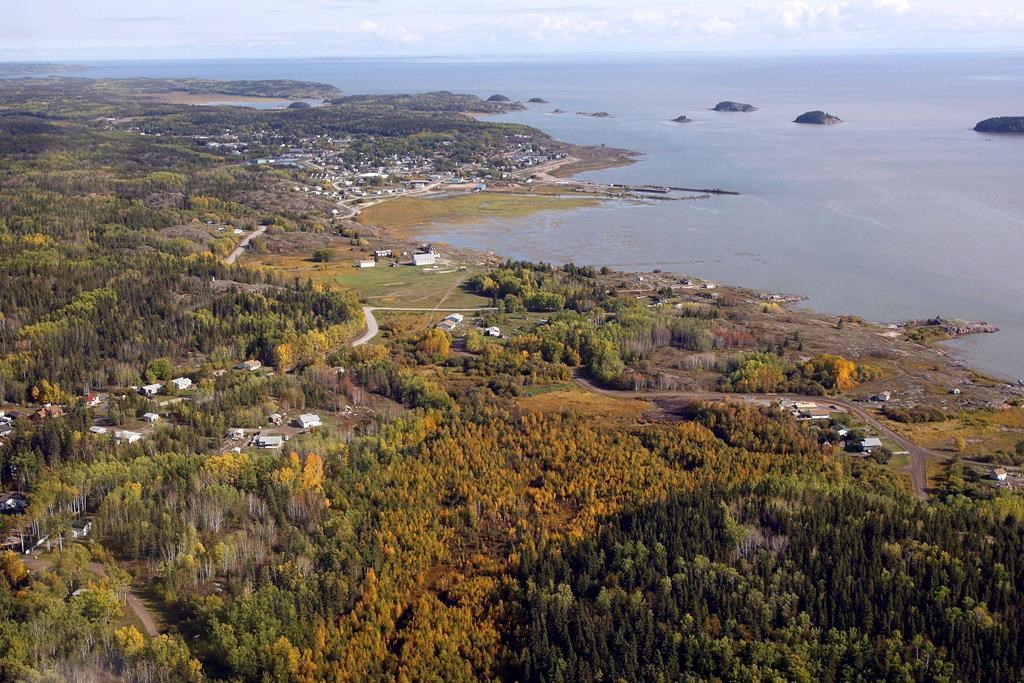A new wildland park in northern Alberta will go a long way toward ensuring Indigenous people can keep up their traditional pursuits, a local First Nation said Tuesday.

“This is a strong environmental, ecological protection,” said Melody Lepine of the Mikisew Cree First Nation. “It’s really watershed focussed.”
The Alberta government announced on Tuesday the creation of Kitaskino Nuwenene Wildland Park, a 1,600-square-kilometre park that links and expands two previously announced parks buffering Wood Buffalo National Park.
READ MORE: UNESCO issues warning about Wood Buffalo National Park
The park comes after three energy companies — Cenovus, Imperial Oil and Teck Resources — returned oilsands leases to the government. A fourth company, Value Creation Inc., agreed to sell its leases back, said Lepine.

Get breaking National news
Lepine said the new park will also start to answer concerns a United Nations body has expressed about the existing Wood Buffalo National Park.
Both UNESCO and a federal government report have concluded that Wood Buffalo’s environmental values were deteriorating. A buffer zone around the park was one of UNESCO’s 17 recommendations to turn that around.
READ MORE: Ottawa invests $27.5M into Canada’s largest national park located in northern Alberta
Lepine said the new park will protect tributaries flowing into Wood Buffalo’s Peace-Athabasca Delta, one of the wolrd’s largest freshwater deltas and home to millions of migratory birds.
“Is this the entire buffering zone? No. But it is a right step in the direction of creating a full buffer zone.”
Lepine said the new park will enable Mikisew members to continue their traditional use of the park, which includes trapping, gathering and hunting one of its bison herds.
The new park was also welcomed by the Alberta Wilderness Association, which pointed out woodland caribou herds and migratory birds will also benefit.
“(The association) urges implementation of a ‘Phase 2’ process to add additional lands to the park and further connect and protect important wood bison, woodland caribou and migratory bird habitat,” it said in a release.
READ MORE: Wood Buffalo National Park is threatened by industry, climate change: environmental assessment
The entire park will be open for non-motorized use, including horseback riding. Fishing and hunting will be allowed.
Off-highway vehicles and snowmobiles will be permitted, but no new trails will be developed.
It will be closed to forestry and new energy development, although existing wells can keep operating.

Comments
Want to discuss? Please read our Commenting Policy first.